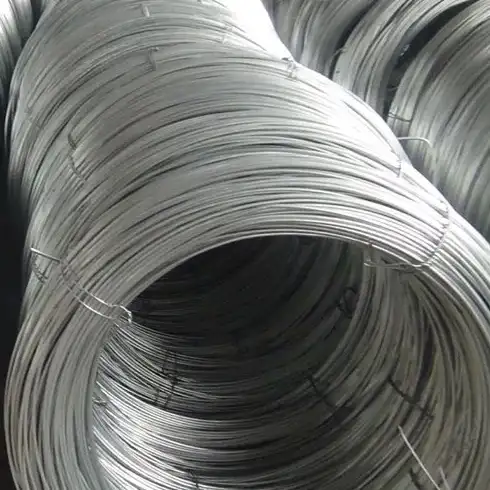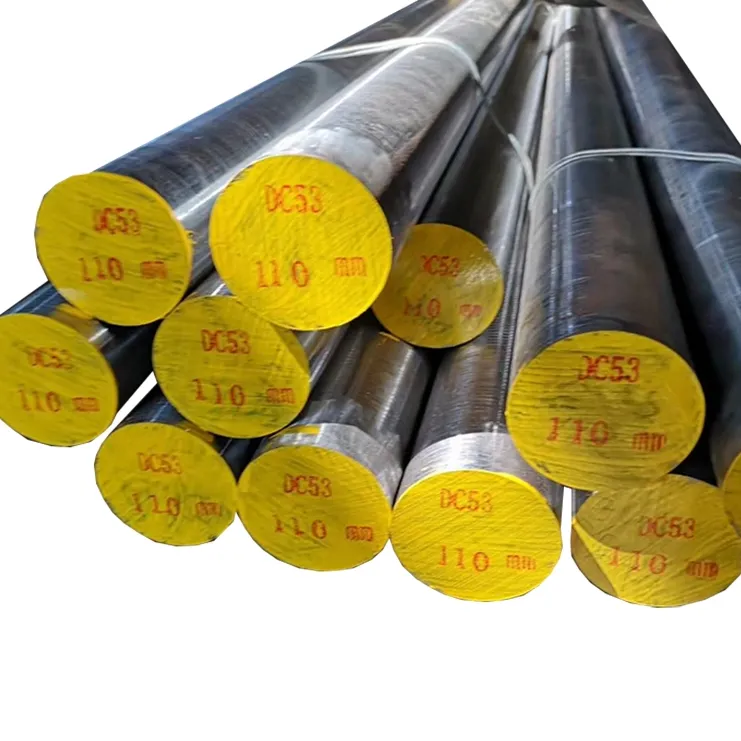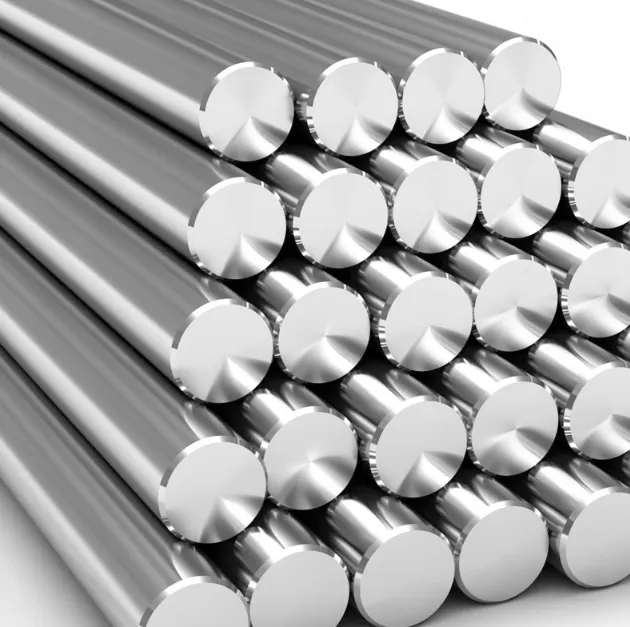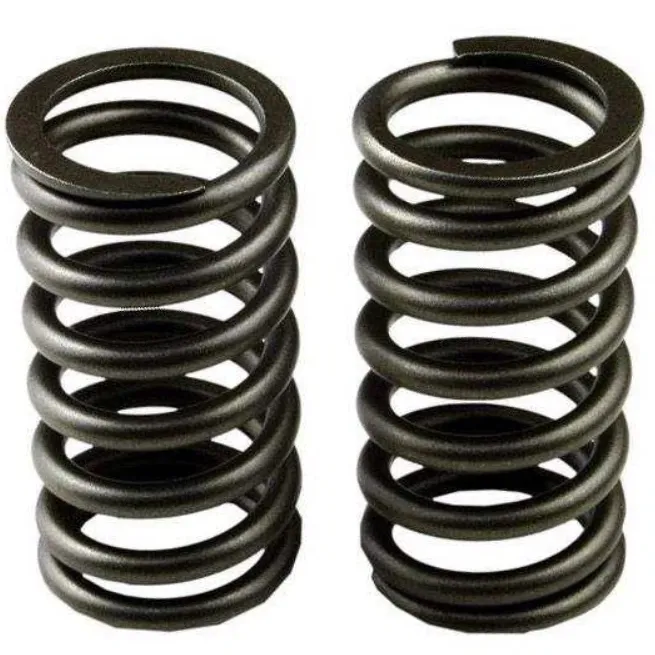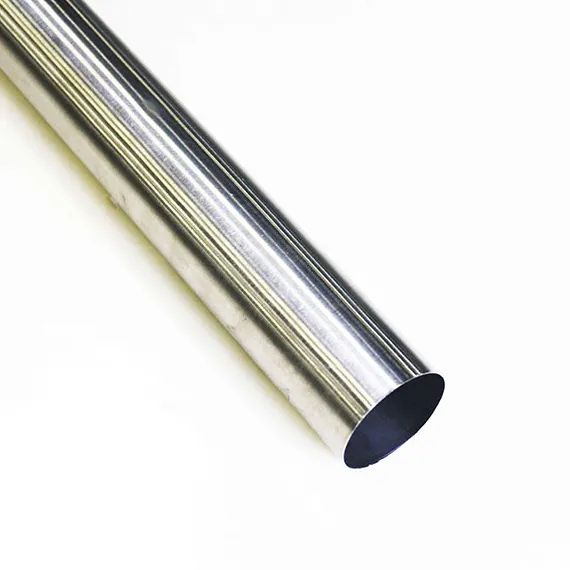Inconel X-750 wire is a precipitation-hardenable nickel-chromium superalloy wire engineered for sustained high strength, excellent oxidation resistance, and reliable relaxation resistance in elevated-temperature service; it is therefore a top choice for high-temperature springs, turbine hardware, fasteners, and nuclear components. MWalloys supplies Inconel X-750 wire from our Chinese factory at direct factory pricing with ready stock and quick shipment for standard sizes.
Product snapshot
Product: Inconel X-750 wire (UNS N07750, W. Nr. 2.4669)
Available forms: round wire (coils/spools), flat/rectangular wire, shaped wire, fine wire, and spring wire in annealed or pre-aged tempers. Typical diameters stocked: 0.15 mm — 6.0 mm (special sizes by order). Temper/designs: soft annealed for forming, spring tempers (AMS 5699/AMS 5698 variants). MWalloys offers 100% factory direct pricing from China, domestic stock for fast delivery, full mill test reports, and customs paperwork support for export.
What is Inconel X-750 wire?
Inconel X-750 is a nickel-chromium-iron superalloy strengthened via a precipitation (age) hardening mechanism through additions of titanium and aluminium. In wire form the alloy is widely used where combination of sustained strength at elevated temperatures, resistance to relaxation (important for springs), and good resistance to oxidation and many corrosive atmospheres are required. Wire variants are manufactured by hot-and cold-working followed by controlled heat treatments and, for spring products, final cold-working and aging to reach required mechanical characteristics. Major suppliers and datasheets document the alloy’s service limit in continuous use up to roughly 700°C (≈1300°F) for many structural uses, with oxidation resistance retained to still higher temperatures.
Principal features and benefits
-
High elevated-temperature strength — retains tensile and creep-rupture capability where common steels would soften.
-
Good relaxation resistance — crucial for spring and preload applications that operate for long durations at high temperature.
-
Oxidation resistance — forms stable chromium oxide layers; suitable in many oxidizing atmospheres.
-
Cryogenic behaviour — alloy maintains toughness at very low temperatures, so wire can be used across wide thermal ranges.
-
Formability and surface finish — wire can be drawn to fine diameters and produced in shaped profiles; plating or passivation options available for special applications.
Material properties
The following values are representative typical (room temperature unless stated). For design, consult mill certificates and the applicable standard (AMS/ASTM) for guaranteed minima.
| Property | Typical value (metric) | Notes |
|---|---|---|
| Density | 8.28 g/cm³ | measured at 20°C |
| Melting range | ≈ 1290–1340 °C | solidus–liquidus range depends on exact chemistry. |
| Tensile strength (aged / spring temper) | 900–1250 MPa | depends on diameter and temper; AMS springs show upper values near 1200–1250 MPa. |
| Yield strength (0.2% offset) | 600–1000 MPa | varies with heat treatment and cold work. |
| Elongation (in 50 mm) | 10–30% | wire sizing and temper change % elongation. |
| Modulus of elasticity | ~200 GPa | engineering estimate for nickel-base superalloys. |
| Service temperature (continuous) | up to ≈ 700°C (1290°F) | useful strength begins to fall above this; some applications use it up to ~900°C for short durations. |
| Creep resistance | Excellent up to 700°C | age hardening confers long-term creep strength. |
| Corrosion resistance | Good in oxidizing media; not immune to halides and fluorides | careful selection and testing required for aggressive chemistries. |
Notes: Values above are aggregated from supplier technical bulletins and industrial datasheets; project-specific design requires certified test data and confirmation to the selected standard.
Chemical composition
Typical composition ranges (weight percent) for UNS N07750 / Inconel X-750 (limits vary by standard — AMS/ASTM/Mill spec). The table shows commonly cited limits used by wire producers.
| Element | Typical range (wt%) | Comment |
|---|---|---|
| Nickel (Ni) + Cobalt (Co) | ≥ 70.0 (Ni primary) | Nickel is the balance; cobalt may be present in small amounts. |
| Chromium (Cr) | 14.0 – 17.0 | Key for oxidation resistance. |
| Iron (Fe) | 5.0 – 9.0 | Balance after Ni and Cr. |
| Titanium (Ti) | 2.25 – 2.75 | Precipitation hardening element (γ′ phase with Al). |
| Aluminium (Al) | 0.40 – 1.00 | Works with Ti for age hardening. |
| Niobium (Nb) + Tantalum (Ta) | 0.70 – 1.20 (Nb+Ta) | Small additions to influence creep and stability. |
| Manganese (Mn) | ≤ 1.0 | Impurity/processing control. |
| Copper (Cu) | ≤ 0.5 | Limited presence. |
| Silicon (Si) | ≤ 0.5 | Deoxidizer control. |
| Carbon (C) | ≤ 0.08 | Controlled to limit carbide formation. |
| Sulfur (S) | ≤ 0.01 | Low for performance. |
Reference note: Different standards and mill practices tune these ranges; the chemical table above reflects common industry specifications used for wire grades. Verify the actual chemical certificate supplied with each lot.
Equivalent designations and applicable standards
Common designations
-
UNS: N07750
-
Werkstoff / EN: 2.4669 (EN name: NiCr15Fe7TiAl or similar)
-
Popular trade names and synonyms: Alloy X-750, Nickel X750, and supplier trade labels (note: “INCONEL®” is Special Metals’ trade name).
Standards & typical specs that apply to wire and spring forms
-
AMS 5698 / AMS 5699 — spring tempers and wire specification (commonly cited for Inconel X-750 spring wire).
-
AMS 5667 — bar/rod/sheet heat-treatment and properties references that influence wire practice.
-
ASTM B637 — nickel alloy wire and bar general specs (various product forms and heat treatments referenced).
-
Additional AMS/SAE or national standards may be relevant depending on aerospace and nuclear applications. For wire form, vendors commonly quote AMS numbers for temper and test requirements.
Design recommendation: when specifying wire for critical hardware, list the exact AMS/ASTM clause, required hardness/UTS, proof load, and any environmental qualification (e.g., NACE/ISO 15156 for sour service).
Typical applications and service environments
Inconel X-750 wire is used where long-term reliable preload and high-temperature strength are required. Representative uses:
-
High-temperature springs (gas turbines, turbocharger actuators, valve springs) — where relaxation resistance and creep life are essential.
-
Aerospace hardware — fasteners, clips, spring elements within engine assemblies and secondary flight systems.
-
Nuclear power plant components — control rod hardware, springs and instrumentation in both PWR and BWR service (with appropriate heat treatments and qualification).
-
Downhole/downstream oil & gas — small high-temperature components tolerant of corrosive wells where oxidation resistance and strength matter.
-
Chemical processing or heat-treat fixtures — where repeated exposure to high temperatures and scaling require oxidation resistance.
What is INCONEL X-750 equivalent to?
When buyers ask for an “equivalent,” they typically mean interchangeability with other standards or trade names. The practical equivalents are:
-
Alloy X-750 (generic name) — many mills sell material to the same UNS/EN composition under that generic name.
-
UNS N07750 / W. Nr. 2.4669 — numerical equivalents used in purchase orders.
Careful: some alloys may have similar nominal chemistries but different processing histories (e.g., different Al+Ti levels, trace elements, or heat-treatment sequences) and therefore do not behave identically in demanding service. For critical parts, specify the exact UNS + required AMS/ASTM/EN standard to avoid surprises.
What is the difference between INCONEL X-750 and 316 stainless steel?
This comparison highlights the factors engineers typically judge when selecting between the two:
Base composition and family
-
Inconel X-750 is a nickel-chromium superalloy (Ni ≈ balance).
-
316 is an austenitic stainless steel (Fe-Ni-Cr with Mo for pitting resistance).
Temperature capability
-
X-750 retains strength and creep resistance to roughly 700°C for long durations; parts can survive short excursions higher than that.
-
316 stainless is good up to around 400–600°C depending on load but softens and creeps faster than X-750 at turbine-class temperatures.
Corrosion resistance
-
316 resists chloride attack better in aqueous environments (pitting resistance due to Mo).
-
X-750 resists oxidation and high-temperature corrosion better; it is not a universal substitute for 316 in seawater without testing.
Mechanical performance
-
X-750 offers much higher yield and tensile strength in aged/spring tempers when compared to annealed 316.
-
316 is typically more ductile and easier to weld and form in many shop operations.
Cost
-
X-750 is materially more costly (nickel content and specialty processing). For non-high-temperature or non-creep applications, 316 is an economical choice.
Summarized recommendation
Choose X-750 whenever sustained high temperature strength and relaxation resistance are required; prefer 316 for general corrosion resistance in aqueous service and lower cost for non-elevated temperature designs.
Heat treatment, processing, welding and wire finishing guidance
Common thermal treatments for wire
-
Solution anneal (typical high-temperature soak to dissolve phases) followed by aging/precipitation hardening schedule (temperatures and times per AMS/ASTM / supplier datasheet) to produce the target tensile and relaxation properties. Different temper cycles yield spring tempers (high UTS) or softer drawing tempers for forming.
Forming and drawing
-
Wire is typically cold-drawn after initial soft anneal; final cold-work plus aging achieves spring characteristics. For shaped wire, forming operations must account for work-hardening and springback.
Welding
-
Welding X-750 is possible but more complex than welding common stainless alloys because of Al/Ti content (sensitive to strain-age cracking if improper filler or heat input used). Use appropriate filler metals and minimize heat input; many fabricators avoid heavy weldments in precipitation-hardenable alloys unless experience and procedures are in place. Virgamet
Surface finishes and coatings
-
Vendors can supply bright-drawn wire, plated (e.g., silver or nickel) or passivated finishes upon request. Some applications use surface plating to improve conductivity or to ease brazing.
Quality control, testing, traceability and certifications
When buying Inconel X-750 wire for critical systems insist on:
-
Full Mill Test Report (MTR) showing chemical analysis and mechanical tests.
-
Heat number traceability from melt to finished product.
-
Hardness and tensile/elongation tests to verify temper.
-
Microstructural control where required — grain size and precipitate checks for some nuclear or aerospace parts.
-
Non-destructive testing (NDT) if the application demands (eddy current or dye penetrant for surface defects; specialty NDT for assemblies).
-
Compliance certificates (e.g., ISO 9001 supplier quality, NADCAP for aerospace processes where applicable).
MWalloys issues MTRs with every customer order and supports additional test witnessing or third-party inspection on request.
Global price snapshot 2025
Important: nickel alloy pricing fluctuates with raw material (nickel, chromium), energy and freight costs. The values below are indicative market references gathered from multiple suppliers in 2025; use them only for budgeting and confirm with a live quote.
| Region / channel | Typical price per kg (USD) — 2025 snapshot | Notes / source |
|---|---|---|
| China direct factory (small qty) | $35 – $60 / kg | Many Chinese mills and trading houses list wire in this range depending on diameter and temper. |
| Europe (distributor, small coils) | $60 – $95 / kg | Distributor premium, test-certificate, import costs. |
| North America (authorized distributor) | $70 – $110 / kg | Aerospace-grade AMS certs and lot traceability raise costs. |
| Bulk / OEM long-term contract | Negotiated / index-linked | Large contracts often tied to nickel/lme indices and alloy surcharges. |
How to read the table: small diameter fine wire and spring-quality tempers often cost more per kg than coarse drawn bulk wire. MOQ, packaging, and required test reports add to landed cost. MWalloys provides transparent factory pricing and helps calculate landed cost for your destination port.
Packaging, lead times, MOQ, and MWalloys’ supply advantages
-
Standard packaging: wire coils on wooden or plastic spools, vacuum-sealed for fine wire, boxing with moisture inhibitors for export.
-
Typical lead time (standard stock sizes): 3–14 days from Shanghai / Ningbo for stocked items; custom sizes or special tempers 2–6 weeks. (MWalloys keeps fast-moving sizes in stock for immediate shipment.)
-
Minimum order quantity: varies by diameter and spool size. Small trial lots often available.
-
Why purchase from MWalloys: direct factory sourcing (China), 100% factory price (no distributor markup), full MTRs and QC, export documentation assistance, flexible MOQ, and expedited shipping options for urgent needs.
Frequently asked questions (FAQs)
-
Is Inconel X-750 suitable for continuous use at 800°C?
X-750 maintains useful strength near 700°C; continuous exposure at 800°C shortens life and reduces precipitation-hardening effectiveness. For continuous 800°C service, select an alloy qualified for that temperature or perform life-prediction testing. -
Can I weld Inconel X-750 wire to other alloys?
Welding is possible but requires suitable filler metals and controls to avoid strain-age cracking; welded regions often need post-weld heat treatment. Consult the welding procedure specification (WPS) for the specific assembly. -
How is spring wire temper specified?
Typically by AMS/SAE temper numbers (e.g., AMS 5699) plus tensile or hardness targets. Specify the required UTS, proof load, or relaxation limit in the PO. -
What testing accompanies MTRs?
Chemical analysis, tensile test, and hardness are standard; additional tests on request include microstructure, intergranular corrosion tests, and NDT. MWalloys provides full MTRs. -
Can you provide fine diameter wire (<0.2 mm)?
Yes; fine wire is available in small spool quantities with bright-drawn finish; lead times vary. -
Is the alloy magnetic?
X-750 is generally non-magnetic or weakly magnetic; specific magnetism can vary with cold work and temper. -
Does X-750 resist chloride stress corrosion cracking (SCC)?
In fully aged condition X-750 shows improved resistance to chloride SCC relative to some alloys, but SCC sensitivity depends on environment, temperature, and heat treatment; project-level testing is advised. -
Are custom shapes (flat or formed) possible?
Yes; MWalloys can supply flat wire, shaped profiles, and pre-formed spring sets to print. -
What documentation accompanies export shipments?
Commercial invoice, packing list, original MTR, certificate of origin (if requested), and any requested inspection or compliance certificates. -
How do I request a quote and technical support?
Send your desired diameter, temper, required standards (UNS/AMS/ASTM), quantity, destination port, and any test requirements; MWalloys will return a factory quote, lead time, and suggested shipping options.
Closing: why choose MWalloys for Inconel X-750 wire
At MWalloys we combine metallurgical experience and factory sourcing to offer competitive factory prices, inventory for common wire sizes, and technical support for tempering and specification alignment. We ship worldwide and support export documentation. For quotation: indicate UNS N07750, diameter, temper (or target UTS), quantity, and destination port — we’ll return a full quote including lead time and MTRs.

